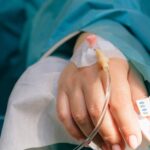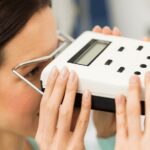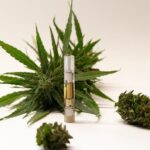Varicose Veins Treatment: Radio frequency Ablation
Varicose veins are a common health condition associated with bulging twisted veins on legs and feet. According to health experts, this condition can be treated surgically. Some of the available modalities are saphenous venous ligation and phlebectomy, stripping, and radio frequency ablation. The latter is the most current varicose veins treatment technology, and it was first used in Canada.
Radio frequency ablation (RFA), according to venous health experts, is a safe and effective treatment option for veins issues particularly varicose veins. If you need RFA in Boise Idaho, choose a healthcare facility with all the necessary resources and professionals to help treat your condition.
Don’t ignore varicose veins
Numbers suggest that varicose veins affect about 26 percent of the adult population. The condition is also a frequent cause of discomfort and pain, loss of productivity, and is associated with overall deterioration in health-related quality of the patient’s life.
Treatment of varicose veins
Several therapies have been brought forward for the treatment of varicose veins. One of the conventional open surgical interventions is the ligation of the saphenous vein and striping. On the other hand, bulging and twisted smaller veins can be treated via phlebectomy.
Over the last couple of years, less invasive modalities including endovenous radio frequency ablation, foam sclerotherapy, and endovenous laser therapy have been used widely in the treatment of varicose veins. Though the endovenous treatment approaches are associated with less postoperative complications, it is recommended to consult with your doctor and choose the right varicose vein treatment option.
Radio frequency ablation: How it works
Generally, radio frequency ablation is a treatment approach that uses radio frequency or even laser energy to effectively cauterize and close varicose veins in a patient’s legs. This treatment approach can be used for cosmetic reasons. However, it’s commonly used in the process of easing symptoms associated with varicose veins including swelling, itching, inflammation, skin irritation, and discoloration. Radio frequency ablation, according to health experts, is safe, less invasive, and leaves no scars.
If you intend to undergo radio frequency ablation, it is important to tell your healthcare provider about all your medical conditions, recent illnesses, medications you are taking, and all possible allergies. Even if you are taking aspirin or herbal supplements, it is recommended that you share this information with your healthcare provider.
Based on your health history and the doctor’s evaluation, you might be advised to stop taking nonsteroidal anti-inflammatory drugs, aspirin, or blood thinning medication for several days before your radiofrequency ablation procedure. Keep in mind that you should share all the details regarding your health. This will help your doctor to make an accurate evaluation and offer you the right advice.
During the procedure, your doctor will use an ultrasound to visualize the varicose vein. A radio frequency electrode or laser fiber is then advanced to the desired location along the affected vein via an IV. Local anesthesia may be injected to make the vein collapse around the laser and serve as an insulation for the heat generated by the laser energy or the radio frequency. Lastly, radio frequency or laser energy is applied, heating the vein and causing it to close.






